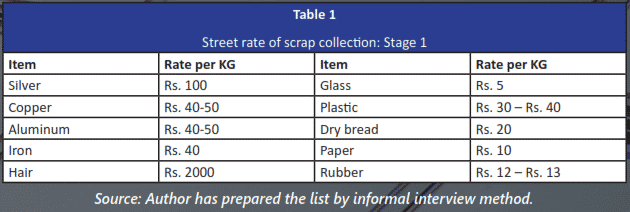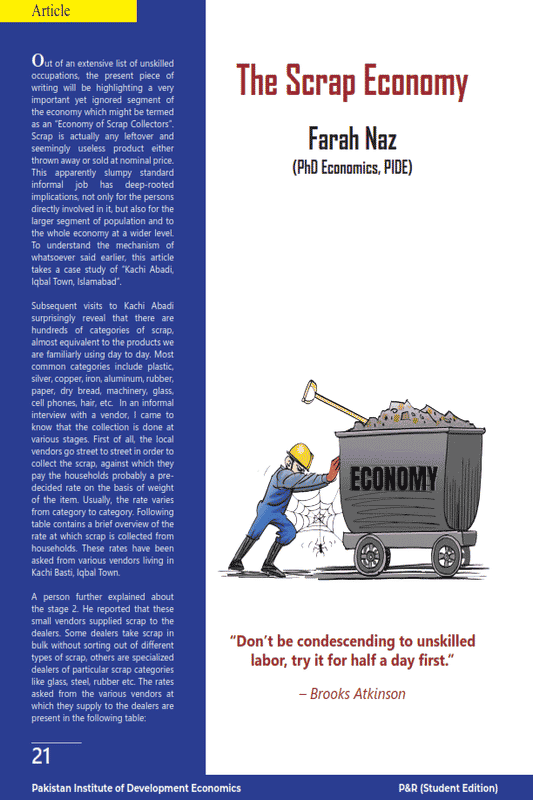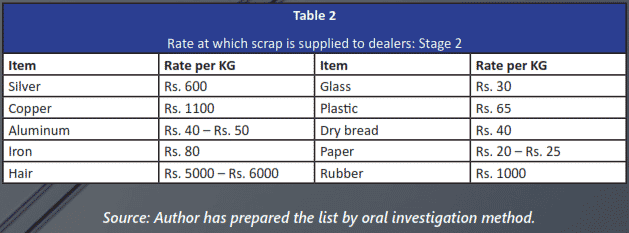The Scrap Economy
“Don’t be condescending to unskilled labor, try it for half a day first”
Brooks Atkinson
Out of an extensive list of unskilled occupations, the present piece of writing will be highlighting a very important yet ignored segment of the economy which might be termed as an “Economy of Scrap Collectors”. Scrap is actually any leftover and seemingly useless product either thrown away or sold at nominal price. This apparently slumpy standard informal job has deep-rooted implications, not only for the persons directly involved in it, but also for the larger segment of population and to the whole economy at a wider level. To understand the mechanism of whatsoever said earlier, this article takes a case study of “Kachi Abadi, Iqbal Town, Islamabad”.
Subsequent visits to Kachi Abadi surprisingly reveal that there are hundreds of categories of scrap, almost equivalent to the products we are familiarly using day to day. Most common categories include plastic, silver, copper, iron, aluminum, rubber, paper, dry bread, machinery, glass, cell phones, hair, etc. In an informal interview with a vendor, I came to know that the collection is done at various stages. First of all, the local vendors go street to street in order to collect the scrap, against which they pay the households probably a pre-decided rate on the basis of weight of the item. Usually, the rate varies from category to category. Following table contains a brief overview of the rate at which scrap is collected from households. These rates have been asked from various vendors living in Kachi Basti, Iqbal Town.
A person further explained about the stage 2. He reported that these small vendors supplied scrap to the dealers. Some dealers take scrap in bulk without sorting out of different types of scrap, others are specialized dealers of particular scrap categories like glass, steel, rubber etc. The rates asked from the various vendors at which they supply to the dealers are present in the following table:

The comparison of table 1 and table 2 reveals the differences in rates. It depicts that the small vendors get a huge benefit out of this seemingly insignificant job. The notable fact is that on average, small vendors easily make Rs.60-70 thousand per month from this collection activity on which their whole family relies. Most of them have large families with many dependents. Hence, this amount helps them feed enough members. However, majority of them do not send their kids to school.
A dealer explains that having a collection point can easily promise an income of Rs.10-15 thousand per day on average, which gives a very handsome figure once multiplied with days of a month. Up till this stage, the economy remains unregistered, and everything happens under informal sector of the economy. Once these dealers supply the bulk in tons through trucks for recycling, this process enters the stage from where documentation actually begins.
In Pakistan, majority of the scrap is being managed. Whereas, only a very small part can be called as garbage that contains residuals of perishable items like fruits, vegetables etc. In scrap management, a significant role is being played by the people whose efforts are not recognized. This segment of informal economy definitely needs government’s attention and their role needs to be more formalized and recognized. Finally, there is a need to provide better facilities for collection and storage, while also improving health and safety in working conditions.





